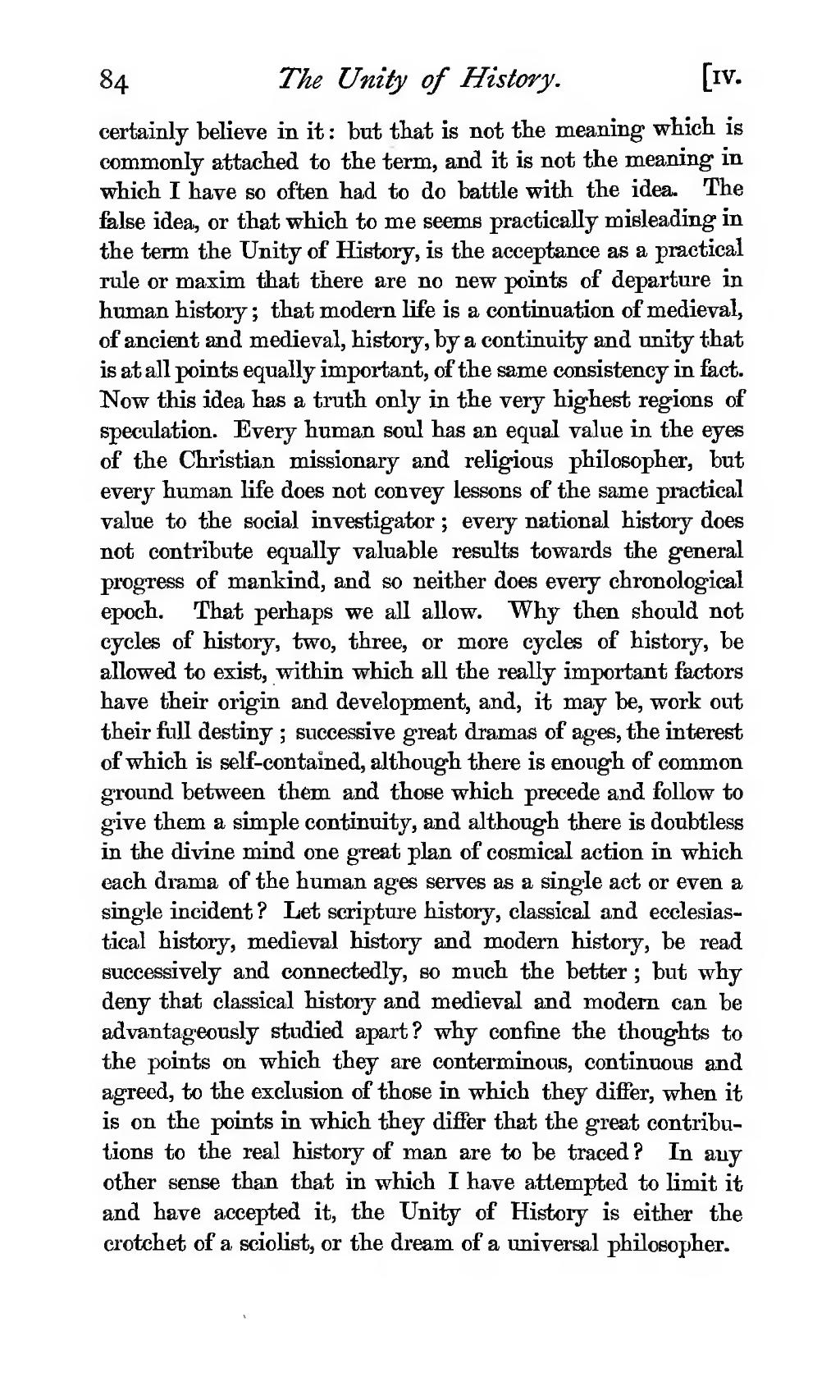certainly believe in it: but that is not the meaning which is commonly attached to the term, and it is not the meaning in which I have so often had to do battle with the idea. The false idea, or that which to me seems practically misleading in the term the Unity of History, is the acceptance as a practical rule or maxim that there are no new points of departure in human history; that modern life is a continuation of medieval, of ancient and medieval, history, by a continuity and unity that is at all points equally important, of the same consistency in fact. Now this idea has a truth only in the very highest regions of speculation. Every human soul has an equal value in the eyes of the Christian missionary and religious philosopher, but every human life does not convey lessons of the same practical value to the social investigator; every national history does not contribute equally valuable results towards the general progress of mankind, and so neither does every chronological epoch. That perhaps we all allow. Why then should not cycles of history, two, three, or more cycles of history, be allowed to exist, within which all the really important factors have their origin and development, and, it may be, work out their full destiny; successive great dramas of ages, the interest of which is self-contained, although there is enough of common ground between them and those which precede and follow to give them a simple continuity, and although there is doubtless in the divine mind one great plan of cosmical action in which each drama of the human ages serves as a single act or even a single incident? Let scripture history, classical and ecclesiastical history, medieval history and modern history, be read successively and connectedly, so much the better; but why deny that classical history and medieval and modern can be advantageously studied apart? why confine the thoughts to the points on which they are conterminous, continuous and agreed, to the exclusion of those in which they differ, when it is on the points in which they differ that the great contributions to the real history of man are to be traced? In any other sense than that in which I have attempted to limit it and have accepted it, the Unity of History is either the crotchet of a sciolist, or the dream of a universal philosopher.
